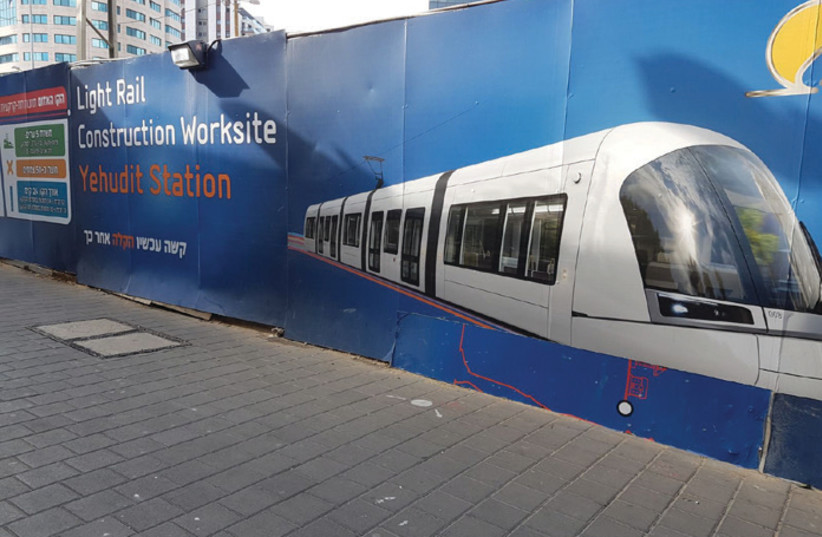Israel rejected Chinese companies that sought to build more lines of the Tel Aviv light rail, amid US pressure to keep Beijing out of necessary infrastructure projects.
Alstom, which is French, and Israeli companies Dan and Electra won the Green Line tender, while Shafir, which is also Israeli, and the Spanish company CAF will build the Purple Line, NTA Metropolitan Mass Transit System Ltd., the government-funded company responsible for the planning and construction of the Tel Aviv light rail, announced on Sunday.
The Green and Purple Line tenders, for one of the largest and most complex infrastructure projects in Israel’s history, were seen by officials in Washington as a major test of this Israeli government’s policy towards China.
The Trump and Biden administrations have warned Israel in recent years that Chinese investments could lead to security breaches. Israel’s Security Cabinet, National Security Council and other forums have long been engaged in discussions of how to respond to the concerns of Israel’s most important ally, while maintaining strong trade ties with China.
A senior Israeli diplomatic official said earlier this month that Israel would update the US government about any major infrastructure and technology deals with China and would reconsider them at Washington’s request.

Jerusalem is on the American side if it has to choose a side, and won’t fight with Washington over China, the senior diplomatic official said, but it would prefer to keep its decisions on the matter under the radar so it does not lose business and investments from the world’s most populous country.
One of the groups competing for the light rail deal included the China Railway Construction Company, which the Biden administration banned from receiving any US investment, due to suspected ties to the Chinese defense industry. The World Bank sanctioned CRCC in 2019, following fraud allegations.
One of its subsidiaries, the China Civil Engineering Construction Corp., dug the Gilon Tunnel in the North in 2014 at a cost of about $200 million, worked as a subcontractor on the Carmel Tunnel project for about $150m. in 2010, and has been working on the Tel Aviv Light Rail’s Red Line to the tune of $500m. in recent years.
CRCC has a history of “dumping,” a common practice by companies taking part in China’s initiative to expand its infrastructure construction around the world, by which they bid for a tender at a loss, in order to win.
Their bid for the Tel Aviv Green and Purple Lines was significantly lower than the others, and NTA began an investigation in August of how it could actually provide the necessary services at such a low price.
NTA has experience with this practice, as Chinese company CRGT has gone well over budget in building the Tel Aviv Light Rail’s Red Line.
The 39 km., 63-station Green Line is meant to run from Rishon Lezion through Holon, central Tel Aviv and Tel Aviv University to western Herzliya. It will include four underground stations; the target year to begin operations is 2026.
The Purple Line will run from Tel Aviv’s Carmel Market eastward, with one route going to Kiryat Ono and Bar-Ilan University and the other to Yehud. It is set to be 27 km. long with 45 stations and to also start running in 2026.
